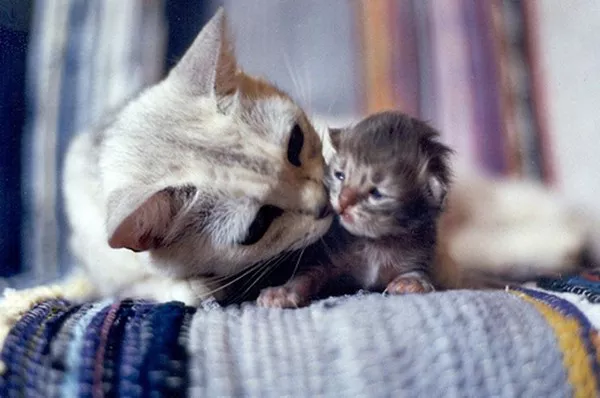Taking care of a two week old kitten can be a challenging task, especially when it comes to their nutritional needs. During the first few weeks of a kitten’s life, it is crucial to provide them with the right amount of milk to ensure they grow up healthy and strong. In this article, we will discuss how much milk a two-week-old kitten needs and why it is essential. We will also provide some tips on how to properly feed your kitten and the best milk substitutes if necessary.
The Importance of Milk for Two-Week-Old Kittens
Milk is vital for a two-week-old kitten’s growth and development. It provides the necessary nutrients, including proteins, fats, and carbohydrates, that a kitten needs to develop strong bones, muscles, and organs. The milk also contains antibodies that help protect the kitten from infections and diseases.
A two-week-old kitten is not yet ready to digest solid food and relies solely on their mother’s milk. If the kitten has been separated from its mother, it is important to provide them with a milk substitute that is as close to their mother’s milk as possible. Feeding the kitten an inappropriate diet can lead to malnutrition, dehydration, and other health problems.
How Much Milk Should a Two-Week-Old Kitten Drink?
A two-week-old kitten should be fed approximately every two to three hours, or eight to twelve times per day. The amount of milk they need will depend on their weight, but a general rule of thumb is to provide about 8-12 milliliters of milk per 100 grams of body weight. This means that a two-week-old kitten weighing around 200 grams should be fed between 16-24 milliliters of milk per feeding.
It is important not to overfeed your kitten as this can lead to digestive problems and obesity. If your kitten seems hungry after a feeding, you can gradually increase the amount of milk you offer at each feeding. It is also important to monitor your kitten’s weight regularly to ensure they are growing at a healthy rate.
How to Properly Feed a Two-Week-Old Kitten
Feeding a two-week-old kitten requires a lot of patience and attention. Here are some tips to help you properly feed your kitten:
- Choose the right milk substitute: If the kitten has been separated from its mother, it is important to choose a milk substitute that is specifically formulated for kittens. Avoid feeding cow’s milk, as it does not contain the necessary nutrients and can cause digestive problems.
- Warm the milk: The milk should be warmed to approximately 100-105 degrees Fahrenheit, or until it feels slightly warm to the touch. Be careful not to overheat the milk, as this can burn your kitten’s mouth.
- Use a feeding bottle: A small feeding bottle with a rubber nipple is ideal for feeding a two-week-old kitten. Make sure the nipple is small enough for the kitten to latch onto comfortably.
- Feed in a comfortable position: Hold the kitten in a comfortable position, either on your lap or on a soft surface, and support their head and neck with one hand. Use the other hand to hold the feeding bottle.
- Monitor the kitten: Keep an eye on the kitten while they are feeding to make sure they are not choking or having difficulty breathing. If the kitten seems to be struggling, stop feeding immediately and seek veterinary assistance.
Best Milk Substitutes for Two-Week-Old Kittens
If the kitten has been separated from its mother or the mother is unable to produce enough milk, it may be necessary to use a milk substitute. Here are some of the best milk substitutes for two-week-old kittens:
Kitten Milk Replacer: This is a specially formulated milk substitute that is designed to provide all the necessary nutrients a kitten needs to grow and develop. It is available at most pet stores and should be mixed with warm water according to the package instructions.
Goat’s milk: Goat’s milk is a good alternative to cow’s milk, as it is easier for kittens to digest and contains many of the same nutrients as mother’s milk. It should be warmed and diluted with water before feeding to the kitten.
Homemade formula: If you are unable to obtain a milk substitute, you can make a homemade formula using ingredients such as evaporated milk, water, egg yolks, and corn syrup. However, it is important to note that homemade formulas may not provide all the necessary nutrients and should only be used as a last resort.
In conclusion, providing the right amount of milk to a two-week-old kitten is crucial for their growth and development. Feeding them a milk substitute that is as close to their mother’s milk as possible and using a small feeding bottle with a rubber nipple can help ensure that they receive the necessary nutrients and are fed safely. It is important to monitor your kitten’s weight and health regularly and seek veterinary assistance if any problems arise.
Recommended reading: Caring for Your Two-Week-Old Kitten: What to Expect

























